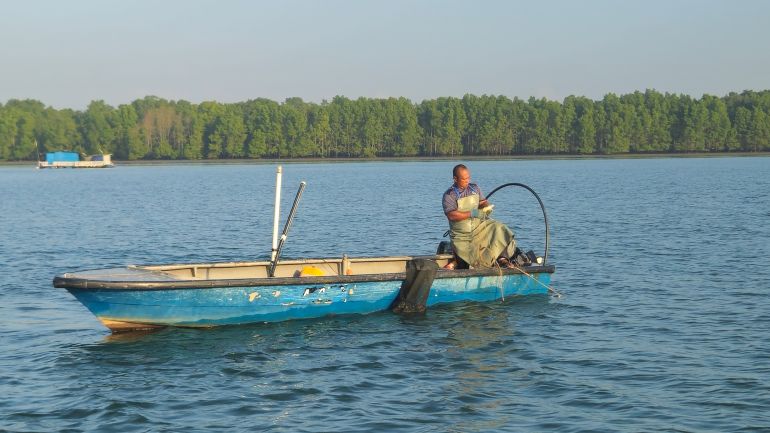
Many traditional Malaysian fishermen have found themselves increasingly affected by the climate crisis, which is changing weather patterns that have long governed when and where they can fish.
Such fishermen are estimated to make up about 65 percent of Malaysia’s total fishing community, and are small-scale operators from seaside or river communities and ply waters close to shore or along the river for fish, clams, crabs and other marine animals to meet local demand.
They typically use single-engine boats about seven metres (23 feet) long, casting their nets in an area up to five nautical miles (9.3km) from the shore along the country’s more than 4,600km (2,858 miles) of coastline.
But erratic weather, warming seas and declining fish stocks caused by climate change are slowly pushing them away from the seas they and generations before them once depended on.
Professor Mohd Fadzil Mohd Akhir, an oceanographer with Universiti Malaysia Terengganu, said marine animals, sensitive to sea temperatures, had been found to migrate to cooler waters as oceans warmed.
Man-made emissions have pushed the average temperature of oceans higher, leading to the melting of polar ice, rising sea levels, ocean acidification, marine heatwaves and more fiercely unpredictable weather.